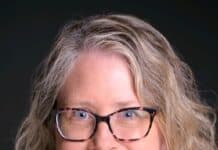
If talking about the budget at home is a contentious issue, imagine talking about the national budget with a room-full of strangers and acquaintances.
On Jan. 27, participants at Yavapai College Sedona Center took part in the year’s first National Issues Forum, “America’s Future: What Should Our Budget Priorities Be?” Andrea Houchard, Northern Arizona University’s director of Philosophy in the Public Interest, moderated the discussion in concert with administrators, teachers and students of the Osher Lifelong Learning Institute.
“As we gradually shake off the effects of the recession, we need to make decisions about our nation’s spending,” Houchard stated in introduction. “Retirement and health care programs, major military costs, deteriorating infrastructure and a steadily increasing national debt all demand attention. We cannot meet all the needs. What should our priorities be?”
As in previous discussions at the college’s Sedona center — under the auspices of the Philosophy in the Public Interest Hot Topics Cafe discussion series — Houchard encouraged participants to speak their minds but remain aware that others hold different views. The purpose of the forum was to understand others’ perspectives while examining one’s own convictions.
“We won’t solve the issue here,” Houchard said. “This is really a civil space where you should feel comfortable disagreeing.”
Potentially contentious issue that it is, the discourse did indeed remain civil, with participants taking clear but polite sides on the issue of altering Social Security and Medicare benefits. A vocal majority objected to one particular position stated in the forum’s discussion pamphlet: “Social Security and Medicare should be need-based and self-sustaining” — or, as Houchard asked,
“Should the wealthy receive Social Security and Medicare?”
This question alone caused the afternoon’s loudest grumbles of disagreement. Participants repeatedly expressed discomfort with the idea that anyone who contributes to Social Security and Medicare funds be denied their benefits.
Houchard countered, saying, “I understand why you’re uncomfortable with this, but for many entitlement programs we do in fact put conditions on them.” Houchard offered the example of taxed Head Start programs: While not used by everyone, beginning education at a young age benefits everyone.
According to Houchard, the same rationale holds true for federal and state assistance programs such as unemployment, low-income housing and food stamps.
“It could be unfair, but it’s consistent with the way our taxation system works,” Houchard added. “It’s the idea of the common good. It’s the way our government works.”
Perhaps consistent with the audience — OLLI students are retirement age, on average — the discussion remained fixed for some time on Social Security and Medicare. Not lost on the participants was the fact that this mirrors many concerns within the Sedona and broader Verde Valley communities. The cost of changing the national budget may affect many whose incomes are based upon entitlement programs.
While not committing to any one view, Houchard offered her rationale for reevaluating budgets:
“There’s always an opportunity cost …. Just because something costs doesn’t mean we don’t do it.”


















